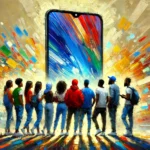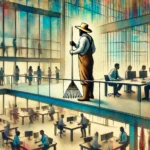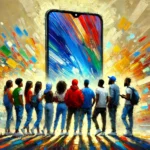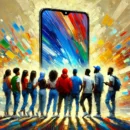Social media exposes what ails our societies
Recently, Kenya’s Harambee Stars went to play a game of football in Nigeria. The host country was less than gracious. Kenya’s national soccer team was not received at the Lagos airport; missed the last connecting flight; was accommodated at a 2-star hotel; and forced to train on a school pitch.
This was of course unacceptable behaviour. In a gentler era, normal diplomatic channels would have led to apologies and redress.
But we live in the social-media era. Within hours, Kenyans had assembled a hashtag, #SomeoneTellNigeria on Twitter and were telling off Nigerians in no uncertain terms. It started off in fairly humorous fashion, and the Nigerians responded in kind with #SomeoneTellKenya. Astonishingly, both hashtags began trending globally.
By this time, however, every underemployed idiot and his uncle, so to speak, had arrived to take advantage of the anonymity and immediacy of the Internet. The jokes soon began taking a nasty turn, and vile bigotry became the order of the day. At one stage, a serious diplomatic incident looked possible.
My friend and colleague Dr Anderson Uvie-Emegbo wrote a very level-headed column in Nigeria’s ‘Punch’ online magazine about this whole affair. He pointed out that Kenya and Nigeria are the two economic powerhouses of East and West Africa respectively, and have much to learn and gain from each other. Wild caricaturing and obscene name-calling is hardly helpful in this regard.
Yet this affair reveals a great deal about the state of the world in the social-media era. As Andy Emegbo pointed out, the initial faults lie with the two football authorities of the two countries. Had they been in proper communication, and had early apologies and redress been forthcoming, the entire hullaballoo would have been avoided. So the first lesson is this: in a world where millions are simultaneously connected via affordable technology, you have WAY less time than you think you have. Your old-world procedures have to receive a fundamental makeover for the digital world.
A second lesson is even more important. With such a spontaneous and uncontrollable platform as modern social media, there is very little anyone will do to manage the message. It is democracy writ large. Anyone with an opinion can express it. Even the dumbest opinions are permissible, and may get amplified by the similarly dumb. Propriety, courtesy and decorum often get tossed out of the window.
This may make us all uncomfortable, but the answer is not to shut the medium down. When those hashtags stopped being witty and started being nasty, I simply switched off to stop the toxic intake. I then went back later to tweet some thoughts and reactions. That is how it is going to work. Those who have a different viewpoint are free to express it. The receiving audience will consume the message it finds most resonant. It is now about influence, not strict control.
It is of course unsettling to see how so many people are so full of base hostilities and intolerance. But rest assured, this is not an African phenomenon. It is the human condition. If you have followed online forums and social-media exchanges in the West, you will see an even baser level of crude mob-justice.
Nor should we assume that the social media phenomenon makes us worse people. It merely gives formerly hidden sentiments an easy outlet. It reveals the problem in our midst, and prevents us from brushing over what ails our societies. For too long, we have tried to avoid the stench of bigotry and narrow-mindedness by not allowing it in civilized discourse. In the social era, all stenches escape.
Both Nigeria and Kenya now realize: the elite no longer set all the rules, and must therefore ensure education and enlightenment for all take the highest priority in society.

Buy Sunny Bindra's book
UP & AHEAD
here »
Popular Posts
- What is a nation?June 30, 2024
- To be a great leader, think like a farmerJuly 21, 2024
- Don’t be surprised by surprisesJuly 14, 2024
- It takes mavericks to change the gameJuly 7, 2024
- Why we should all be activistsJune 16, 2024















